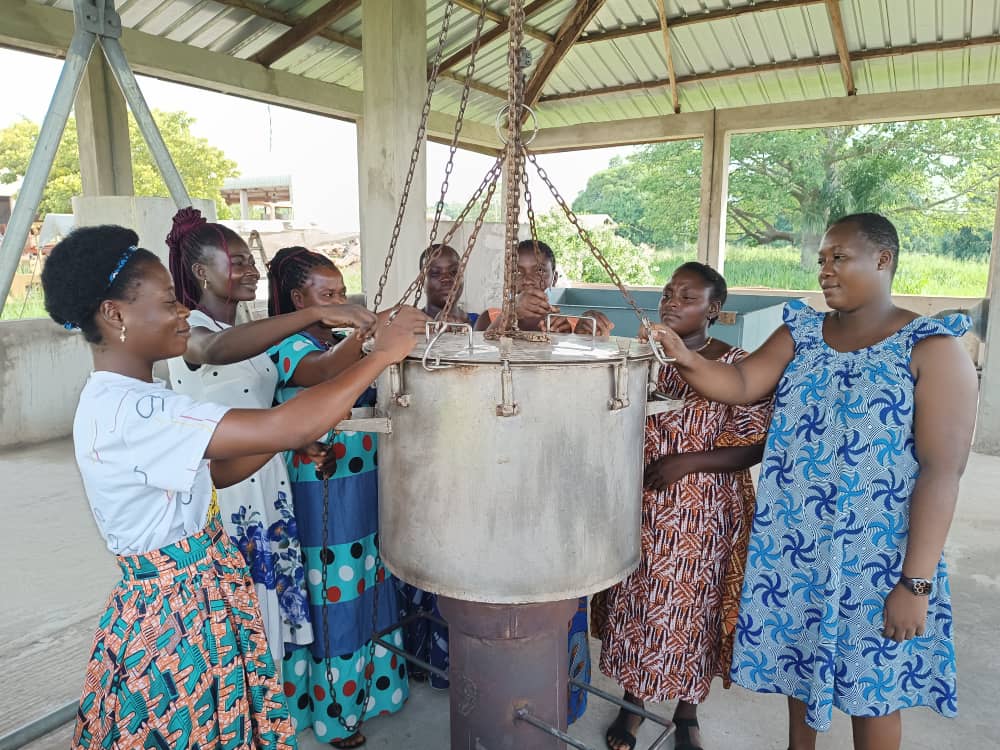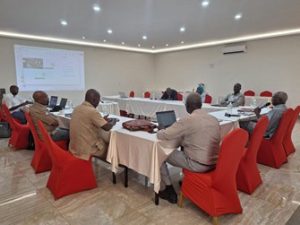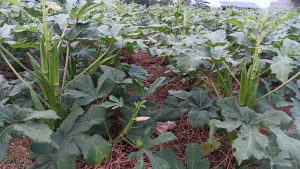TAAT eyes self-sufficiency in Rice for West and Central Africa

With sights set on equipping rice value chain actors (from harvesting to consumption) with the skills and technologies that will permit them to reach wider markets while responding to consumer demands, the Technologies for African Agricultural Transformation (TAAT) Rice Compact, led by the Africa Rice Center is hosting a Training of Trainers (ToT) Workshop for rice parboiling Innovation Platform (IP) leaders and food processors in Cameroon.
The ToT workshop, which will be held from September 9th to 13th at the Cameroonian Institute for Agricultural Research for Development (IRAD) at Nkolbisson, Yaounde, organized by Africa Rice Center in partnership with the Institute for Agricultural Research for Development (IRAD), Cameroon. This training targets 30 rice champions from 30 rice processing SMEs from Lagdo, Yagoua, Ndop, Noun and Southern rice production zone of Cameroon.
Between 2008 and 2018, increases in rice yields from 2.17 tons per hectare (t/ha) to 2.36 t/ha were registered in Africa’s West and Central (WCA) regions. This was accompanied by an increase in rice area of 53% and 37% in WCA, respectively. Between 2018 and 2023, the data suggested continued variability, influenced by climate change, the COVID-19 pandemic, and the war in Ukraine.
These events led to price hikes in food and farm inputs, fertilisers, and pesticides. Paddy production has tremendously increased, but milled rice consumption has greatly surpassed production due to population demographics, such as growth and concentration in cities where rice serves as a convenience food.
Climate-smart agricultural practices to adapt to climate change effects and improved and hybrid high-yielding rice varieties are being disseminated in WCA countries and will further increase paddy rice production. However, the increase in paddy production resulting from the increase in yield and rice area is not enough to drive WCA to rice self-sufficiency.
The need, therefore, to address paddy processing, nutritious quality milled rice, and marketing to reach millions of consumers in cities and rural areas has necessitated this workshop.
Dr. Sali Atanga Ndindeng, the leader of the TAAT Rice Compact, stated that the workshop aims to equip leaders of rice parboiling innovation platforms and food processors in Cameroon with advanced skills and state-of-the-art technologies for producing premium-quality parboiled rice that is rich in micronutrients and has a low glycemic index.
“This ToT for rice parboiling IP leaders and food processors in Cameroon will enhance participants’ understanding of the use and management of GEM parboiling technology, structure and function of efficient rice value chains, good processing practices (GMP), rice processing and grain quality, value addition, rice postharvest value-chain management and business opportunities in the rice value chain,” Dr Ndindeng said.
It would be recalled that AfricaRice, through the HealthyDiets4Africa project, provided two milling systems and two GEM parboilers to two newly created platforms in the Ndop rice development hub: Bamunka and Babessi Innovation Platform. Due to the conflict in the Anglophone regions of Cameroon, many youths and women in the Ndop rice hub have lost their livelihoods as most of them had abandoned their rice farms and rice processing businesses.
Through TAAT intervention, climate-resilient rice varieties were provided and are being multiplied for distribution to these vulnerable farmers; hence, the ToT will go a long way to stabilising these vulnerable populations and encouraging them to return to their rice production businesses.
Through this ToT, TAAT is set to reach thousands and millions of direct and indirect beneficiaries to ensure household food and nutrition security and income generation and contribute to sustainable development (SDG1 and SDG2) of small-scale rice processors in Cameroon.
Established in 2018 as a central pillar of the African Development Bank’s Feed Africa strategy, TAAT represents a transformative initiative to reverse the trend of declining food productivity in Africa through the scaling of modern food production technologies to 40 million farmers across Africa, focusing on supporting young people and women in low-income regions.
TAAT has significantly expanded the distribution of climate-resilient rice varieties, improved agronomic and post-harvest techniques, heat-resistant wheat varieties, drought-resistant maize, high-yield rice, cassava, iron-rich beans, sorghum, millet, orange-fleshed sweet potatoes, superior livestock breeds, and fingerlings to over 12 million farmers.
This initiative has resulted in an estimated increase of 25 million tonnes in crop production, highlighting the program’s success in improving agricultural productivity throughout the continent.
Recent Stories
Related Stories
- CAMEROON: TAAT targets self-sufficiency in Rice
- TAAT, AfricaRice and Partners eye Rice Value Chain Revolution across Africa
- Cameroon: TAAT holds ToT on Soybean Production
- Climate Resilience and Regenerative Agriculture on display as TAAT and Sasakawa host Mega Field Day for Rice Farmers in Benin
- GHANA: TAAT Engages Stakeholders on Innovation Platform Model




